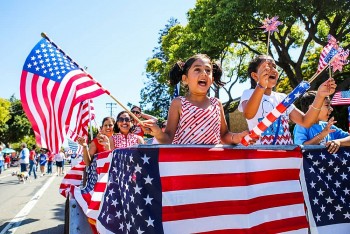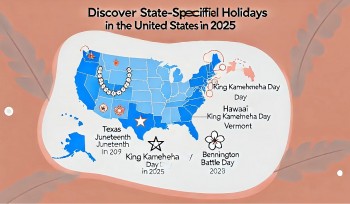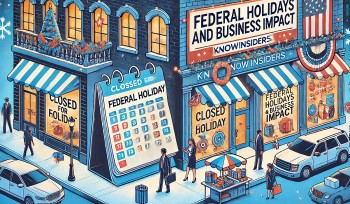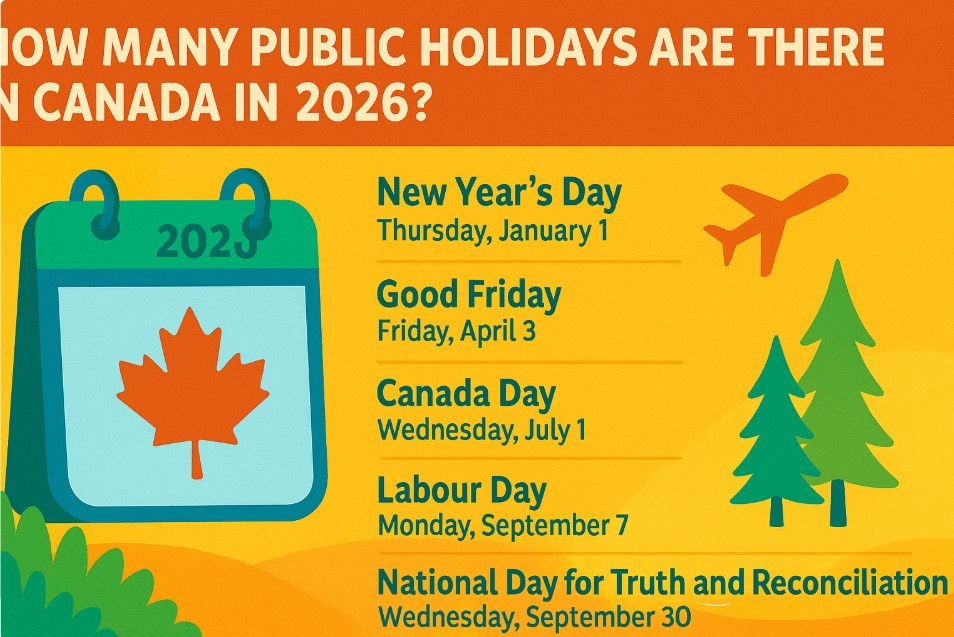Public vs. Private Holidays in the United States: The Differences?
 Full List of US Holidays: Federal, Traditional and Informal Days Full List of US Holidays: Federal, Traditional and Informal Days |
 Bank Holidays in the US 2025: Dates, Local Variations Bank Holidays in the US 2025: Dates, Local Variations |
 |
| Public vs. Private Holidays in the United States |
What Are Public (Federal) Holidays?
Public holidays in the United States, also known as federal holidays, are established by law and recognized across the country. These holidays often commemorate significant historical events or cultural traditions, such as Independence Day or Christmas.
Key Features of Public Holidays:
- Nationwide Observance: Federal government offices, schools, and banks are generally closed.
- Paid Time Off: Most employers provide paid time off (PTO) to their employees for these days, though it’s not legally mandated.
- Cultural and Historical Significance: These holidays reflect key moments in American history or shared cultural values.
List of U.S. Public Holidays (2025):
- New Year’s Day (January 1): Welcomes the start of the calendar year.
- Martin Luther King Jr. Day (January 20): Honors the civil rights leader’s contributions.
- Presidents’ Day (February 17): Celebrates U.S. presidents, particularly George Washington and Abraham Lincoln.
- Memorial Day (May 26): Pays tribute to fallen military service members.
- Independence Day (July 4): Marks the nation’s declaration of independence in 1776.
- Labor Day (September 1): Celebrates the contributions of workers.
- Veterans Day (November 11): Honors all military veterans.
- Thanksgiving Day (November 27): A day for gratitude and family gatherings.
- Christmas Day (December 25): A religious and cultural celebration of the holiday season.
What Are Private Holidays?
Private holidays are not officially recognized by the federal government but are celebrated within families, companies, or communities. These holidays are often tied to specific cultural, religious, or corporate traditions.
Key Features of Private Holidays:
- Limited Observance: Private holidays are celebrated by certain groups rather than the entire nation.
- Flexible Schedules: Companies or families decide whether to observe these holidays.
- Customs and Traditions: Celebrations often reflect personal, religious, or corporate values.
Examples of Private Holidays in the U.S.:
-
Religious Holidays:
- Hanukkah: Celebrated by Jewish communities.
- Diwali: Observed by Indian-American communities.
- Eid al-Fitr: Celebrated by Muslim Americans.
-
Corporate Holidays:
- Employee Appreciation Day: Celebrated by some companies to honor their staff.
- Company Anniversaries: Unique to individual organizations.
-
Cultural or Regional Holidays:
- Juneteenth (June 19): Commemorates the end of slavery in the U.S. (now gaining recognition as a public holiday in many states).
- Patriot’s Day (April 15): Observed in New England states like Massachusetts and Maine.
-
Personal Milestones:
- Birthdays, anniversaries, and family reunions are widely celebrated on a smaller scale.
 |
| Comparing Public and Private Holidays |
Challenges and Controversies
1. Inclusivity in Holiday Observances
- Issue: Federal holidays often reflect Christian or American-centric traditions, leaving other cultural groups underrepresented.
- Example: Hanukkah, Eid al-Fitr, and Diwali are not federal holidays despite their significance to millions of Americans.
2. Workplace Implications
- Issue: Employees observing private religious holidays may need to request additional leave.
- Solution: Many companies now offer flexible PTO policies to accommodate diverse needs.
3. Regional Differences:
- States like Texas, Massachusetts, and Hawaii observe additional public holidays not recognized nationally, such as Cesar Chavez Day or King Kamehameha Day.
The Growing Intersection of Public and Private Holidays
In recent years, the lines between public and private holidays have begun to blur:
- Juneteenth’s Evolution: Once a regional holiday, Juneteenth became a federal holiday in 2021, gaining nationwide recognition.
- Corporate Adoption: Companies increasingly observe cultural holidays like Diwali or Pride Month to promote inclusivity and diversity.
Why Understanding the Difference Matters
For Employees:
- Helps plan PTO and understand workplace holiday policies.
For Employers:
- Promotes inclusivity by acknowledging private holidays in company culture.
For Tourists and Visitors:
- Provides insight into when attractions, businesses, or services may be unavailable.
Conclusion
Public and private holidays in the United States serve as windows into the nation’s values and diversity. While public holidays provide unity through shared traditions, private holidays celebrate the unique identities of families, communities, and organizations. By embracing both, the U.S. continues to evolve as a society that values inclusivity, flexibility, and respect for all cultures.
FAQs
1. Are all federal holidays paid holidays for employees?
Not necessarily. Private employers are not legally required to offer paid time off for federal holidays, though many do as part of their benefits.
2. Can private holidays become public holidays?
Yes, holidays like Juneteenth started as regional celebrations before gaining federal recognition.
3. How do companies handle private holidays?
Many companies offer flexible leave policies, allowing employees to take time off for private holidays or personal celebrations.
4. Are all public holidays observed equally across the U.S.?
Not always. Some federal holidays, like Presidents’ Day, are more widely celebrated in certain regions than others.
5. What are some examples of state-specific public holidays?
- Cesar Chavez Day (California, March 31).
- Patriot’s Day (Massachusetts, April 15).
- King Kamehameha Day (Hawaii, June 11).
By understanding both public and private holidays, individuals can appreciate the diversity and shared traditions that make the U.S. a rich cultural mosaic.
 Comprehensive Guide to U.S. Holidays and Festivals in 2025 Comprehensive Guide to U.S. Holidays and Festivals in 2025 The U.S. in 2025 is packed with diverse holidays and festivals that celebrate its history, cultural richness, and creativity. From patriotic celebrations to regional and ... |
 State-Specific Holidays in the United States in 2025 State-Specific Holidays in the United States in 2025 Holidays in the US reflect its diversity. Many states celebrate regional history, notable people, or cultural traditions in addition to federal holidays. These state holidays ... |
 How U.S. Federal Holidays Affect Business Operations How U.S. Federal Holidays Affect Business Operations Federal holidays in the United States play a significant role in shaping business operations. While they provide an opportunity for employees to rest and celebrate, ... |


























